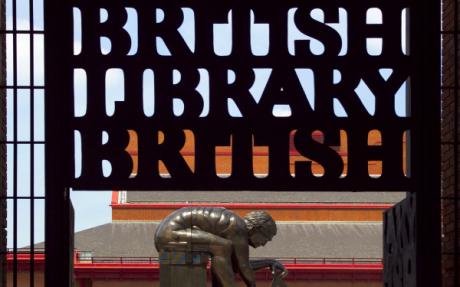The ambitious archive project embarked upon in the UK that aimed to preserve a digital copy of all websites, tweets, Facebook entries, ebooks, newspapers along with other cultural and intellectual works pertaining to the country is now ready to be harvested. Ironically, such a huge digital cache of information can only be accessed from a few select terminals located at pre-designated spots which for now will be located in one of the top six academic libraries un UK and Ireland. While the digital archive is now available at the British Library, the same is set to be rolled out in other sites which include the National Library of Scotland, the National Library of Wales, the Bodleian Libraries, Cambridge University Library and Trinity College Library Dublin.
The project is unique just by the scope of it in that can be considered a digital repository of everything conceivable, which includes centuries old archival material to the more recent social networking updates will make it to digital archive, with anything and everything thrown in in between. The scope is huge and it shouldn’t be surprising the entries have already run into billions of pages.
“Its not a public archive. That’s the absolute key point,” said Angela Mills Wade, executive director of the European Publishers Council in response to reactions from some quarter of the digital archive being only accessible from a physical location. “The [internet archive] legislation has always been constructed for people who go into the Legal Deposit libraries – for the readers, with a capital R. It’s an archive for preservation and for research,” further added Angela obviously referring to the 2003 Legal Deposit Libraries Act that makes it mandatory for digital archives to be treated on par with the archives of yors that comprised of printed material.
However, with such a huge collection of information that provides immense potential for research, its only a select few that will have the privilege to savor the details as permitted by the space that the library locations are able to spare.
Legal Deposit Libraries’ manager Richard Gibby too opposed unrestricted access to the digital archive citing problems it might create for companies that rely on advertising to drive business.
“While there were some discussions into the possibility that the Act might be changed in future so that the archived copies of websites might be made available via the web, it was noted that freely accessible web content can be part of a commercial business model, e.g. to support advertising and ‘click-through’ traffic to the rights owner’s website,” said Giddy while further adding: “Making archived copies of material available online, and also allowing it to be indexed by search engines, could potentially affect the volume of web user traffic to the rights owner’s live website and harm their business model.”
However, tech writer Glyn Moody expressed grouse at the time it took for the project to take its final shape citing the millions of sites that could have been part of the archive but won’t be now that they have ceased to exist. It took over a decade for the British publishers and others concerned to approve of the digital archive.
Worth mentioning here, the National Library of Norway has also taken up a similar project of digitizing all that has ever been published in that country.
With a keen interest in tech, I make it a point to keep myself updated on the latest developments in technology and gadgets. That includes smartphones or tablet devices but stretches to even AI and self-driven automobiles, the latter being my latest fad. Besides writing, I like watching videos, reading, listening to music, or experimenting with different recipes. The motion picture is another aspect that interests me a lot, and I'll likely make a film sometime in the future.
